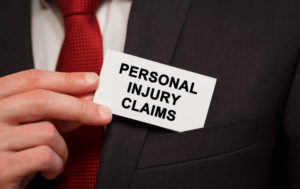
5 Top Tips for Medical Bills in a Personal Injury Claim
Being injured in an accident can be one of the most traumatizing experiences you have to endure. Yet, looming outstanding medical bills can cause even more stress because most people don’t have thousands of dollars readily available.
After all, it’s no secret that in Ohio, medical care can be costly. According to a 2013 study, the median cost of an emergency room visit is $1,233 to see a doctor, with more severe injuries costing significantly more.
Fortunately, in Ohio, you can file a personal injury claim for compensation for the injuries you sustained that were caused because of someone else’s negligence. Yet, filing a personal injury claim with an Ohio personal injury lawyer to obtain a settlement can take time. While you wait, your medical bills could accumulate.
Our law firm would advise you not to wait for a settlement to pay your bills but to try and manage your bills while you wait. To help you learn the best tips for bill management, The Henry Law Firm has put together these tips you need to know to ensure you successfully manage your bills during a personal injury claim.
What Are the Top 5 Tips for Bill Management in a Personal Injury Claim?
Numerous tips surround medical bill management when you have been injured in an accident. Yet, some tips are more relevant than others. Below we have briefly discussed how you can manage your bills while you wait to obtain compensation from a negligent party.
If any tips are confusing or you would like more information, you can speak to us at The Henry Law Firm. We will help you navigate your personal injury claim while helping you manage your bills.

#1. Ensure You Document All Your Medical Expenses and Other Bills
To ensure you get the full and fair payout that you deserve, you need to document all your medical expenses and other bills associated with your recovery. Failure to properly document your medical expenses and other associated bills like physiotherapy sessions, psychiatry sessions, and fuel costs to doctors’ appointments could result in an unfair settlement.
Your insurance company or the negligent party’s insurance company will try to pay you as little as possible. If you don’t have proof to show them, they will underpay you, which could negatively affect your recovery and future financial health.
What you will be able to claim will largely depend on your case specifics, but you might be entitled to recover the following:
- Hospital room charges
- Emergency room costs
- Visits to specialists
- Required medical equipment
- Transportation costs
- Ambulance fees
- Costs related to physical therapy
- Required medications
- X-rays, MRIs, and other lab tests
You also need to be prepared for the insurance company to dispute your various bills even if you have valid documentation. That’s why having an Ohio personal injury attorney on your side will be beneficial.
An attorney will be able to fight back against the insurance companies and negligent parties to ensure your bills are rightfully compensated fairly.
#2. Submit Your Bills to Your Health Insurance
A crucial part of managing your bills in a personal injury claim is submitting them to your health insurance. If possible, you need to do everything you can to ensure your bills don’t go to collections, as this can make your life incredibly difficult.
Additionally, if you have Medical Payments Coverage (Med Pay), you would be able to send your copay bills there so that they are paid while you wait for your case to be resolved.
In most instances, your personal health insurance should cover a significant amount of your bills, even if your case is currently underway. Yet, you should note that depending on your case particulars, you might be able to get your bills deferred until your personal injury case has been resolved.
Sometimes health insurance can refuse to pay your bills, so you need to check your policies and coverage limits to know when an insurer is unfair or unjust.
#3. Beware of Signing Medical Liens
Often many of us who have health insurance are still required to pay out-of-pocket expenses in copays for prescriptions and doctor’s visits. This is especially true if you have suffered severe injuries that have required lengthy hospital stays and frequent doctor visits.
In addition, some medical treatments are not covered by a health insurance provider. You can consider signing a medical lien if you are required to cover out-of-pocket expenses. With a medical lien, you can continue receiving the necessary care without forking out large sums of money.
When you enter into a medical lien, your lawyer and doctor will create a financial arrangement whereby your lawyer will be tasked with paying your doctor once your lawsuit has been settled with the money you won.
Yet, you need to be wary of medical liens, especially if you are not utilizing a lawyer to assist you. This is because many healthcare professionals can overcharge you and tack on more money to existing bills, and you will need to pay it.
#4. When You Don’t Have Health Insurance, Tread Carefully
When you don’t have health insurance and want to manage your bills, you must tread carefully and do everything possible to ensure you pay your medical bills.
The worst thing you can do is allow your medical bills to go to collections, which can negatively affect your overall credit score. That’s why it’s often best to negotiate to settle or work out a payment plan, and a lawyer can help you do both.
If you choose to settle, you will likely receive a ‘self-pay discount’ of 15 to 50% depending on your provider. Yet if you choose this option, you will need to insist on being notified in writing that they have agreed to settle your account if you pay X amount so that they cannot change their story later on.
#5. Consider Lawsuit Funding
Another alternative that could be available to you if you want to manage your billing during a personal injury claim is lawsuit funding. A lawsuit funding loan can be beneficial if you struggle to pay your medical bills and various day-to-day expenses.
Essentially a lawsuit funding loan functions as an advance against the eventual award you will receive from a settlement. With a lawsuit funding loan, you will have access to money you can use however you need while waiting for your injury case to be resolved.
However, the biggest downside to these types of loans is that they often come with steep interest rates and many fees. That’s why you need to try and do your research and be cautious before getting a lawsuit-funded loan.

Speak With an Ohio Personal Injury Attorney to Discuss Your Case
It’s evident that managing your bills while you wait for your personal injury claim to be resolved is challenging and a complicated process to navigate. That’s why it’s usually best to speak with an Ohio personal injury attorney who can guide you and show you what you need to do. At The Henry Law Firm, we can help you with your bill management because we know how challenging it is to focus on finances when recovering from injuries. Get in contact with us today to discuss your case.
Let's do this together
Contact me today to discuss your case at no charge and with no-strings-attached.
(*) - Required field

Office: 440-337-0083
Fax: 440-337-0084
Suite 18
Chagrin Falls, OH 44023





